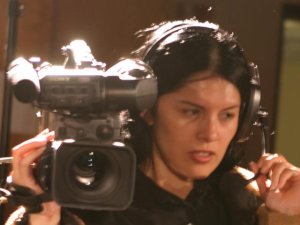Selig Center: Hispanics will top minorities in buying power by 2007
Posted by Elena del Valle on October 3, 2006

Jeff Humphreys, director, Selig Center
Photo: Jeff Humphreys
According to “The Multicultural Economy,” a report on minority buying power from the Selig Center for Economic Growth at the University of Georgia’s Terry College of Business, Hispanic buying power in the United States will draw even with African-American buying power in 2006 at just under $800 billion; and is projected to exceed it in 2007.
Hispanics surpassed blacks as the nation’s largest minority group five years ago, based on population counts. In terms of spending power, the Selig Center indicates that 2007 will mark the first year that Hispanics control more disposable personal income than any other U.S. minority group.
The Selig Center estimated Hispanic buying power will be $863.1 billion in 2007, an 8.1 percent increase over 2006, while black buying power will reach $847 billion in 2007, a 6 percent increase.
“The economic clout of Hispanics has risen from $212 billion in 1990, when I first started doing this study, to $798 billion this year and I expect it to be almost $1.2 trillion five years from now,” said Jeff Humphreys, director of the Selig Center. “That’s more than 450 percent growth from 1990 to 2011. Non-Hispanic buying power is growing closer to a rate of 176 percent over the same period.”
“Still, even as Hispanic buying power overtakes African American buying power at the national level, it is important to recognize that in the majority of states the African American market will continue to be much larger than the Hispanic market,” he said. “This insight reflects the fact that Hispanics and their buying power are much more geographically concentrated than non-Hispanics or African Americans. For example, California alone accounts for 27 percent of all Hispanic buying power in the U.S.”
The Selig Center’s annual report includes state-by-state projections of buying power for the nation’s three most populous racial groups, as well as Hispanics, who are categorized by the U.S. Census as an ethnic minority and not a racial minority. Buying power, also referred to as disposable income, is the total personal income available for spending on goods and services after taxes.
The remarkable gains in Hispanic buying power are largely explained by immigration and population growth, Humphreys said. Between 1990 and 2011, the beginning and ending boundaries of the study, Hispanic population is expected to increase 126.4 percent, compared with 15.4 percent for the nation’s non-Hispanic population
Better employment opportunities and higher business ownership are the other driving forces boosting the Hispanic consumer market. The number of Hispanic-owned businesses grew by 31 percent between 1997 and 2002, triple the 10 percent rate of growth for all U.S. businesses.
Available for purchase as a pre-packaged book and CD, “The Multicultural Economy” estimates minority buying power by applying economic modeling and forecasting techniques to data from U.S. government sources. The model developed by the Selig Center integrates economic forecasting statistical methods with those of marketing research. In addition to the state-by-state breakdowns, the 2006 report also projects minority buying power for all metropolitan areas and counties in Georgia and Florida.
The Selig Center was established in 1990 in memory of Atlanta entrepreneur Simon S. Selig Jr., a 1935 Terry College graduate, by his son, Steve Selig, and daughter, Cathy Selig.










